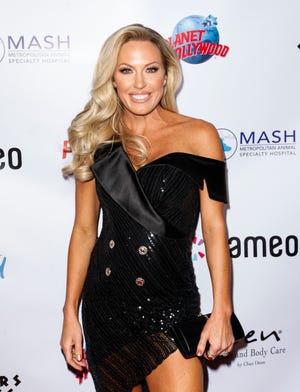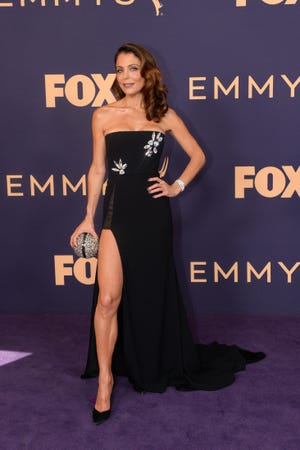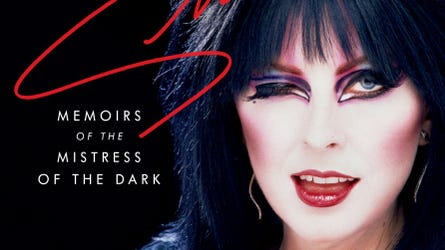Bethenny Frankel faced a slew of criticism in recent days over transphobic comments she made on her podcast “Just B.”
The former “Real Housewives of New York” star expressed frustration with a story she heard about a girl at an all-girl’s summer camp who had a penis, and tried to put her two cents in on the unfounded trans student athletes debate. Frankel has since said on Twitter she’s “not apologizing” and “not afraid of cancelation.” (USA TODAY has reached out to her reps for comment.)
She’s hardly the first “Real Housewives” persona to cross the line and agitate viewers.
Think of Marlo Hampton and Vicki Gunvalson‘s homophobic comments. Or Kim Zolciak and Ramona Singer‘s racist ones. And who could forget Luann de Lesseps’ infamous blackface costume?
Bravo says it’s committed to diversity, equity and inclusion, and cast and crew are required to go through respect in the workplace training. Also, on-air personalities learn in real-time, allowing audiences to watch teachable moments onscreen.
But while the network aims to be inclusive, its “Housewives” keep saying the wrong things. Fans say there needs to be accountability – but is that realistic for a reality TV franchise that thrives on drama?
Read up:First Black ‘RHONY’ cast member Eboni K. Williams: I’m not ‘angry.’ I’m a disrupter.
“I’m not sure that we can expect these women, who we reward for behaving badly, to do this perfectly. And that’s OK,” Dan Udy, a writer and expert on reality TV and LGBTQ issues, says. “However, having some humility and acknowledging causing pain or harm would be a good first step.”
“They can bring the drama without being racist or homophobic,” fan Cheryl Pellegrino says. “There’s no place for this. It’s upsetting and angers people, not entertains.”
The comments from Frankel, whose on-again-off-again tenure on “RHONY” ended most recently in in 2019, highlight a need for healing throughout the franchise.
Braunwyn Windham-Burke – former “Real Housewives of Orange County” star who came out as a lesbian in December 2020 – believes Frankel is a good person. But she points out the need for conversation, given that the transgender community faces high risks of suicide and self-harm. “I think it’s very important for the cisgender community to do the work and the research on their own,” Windham-Burke, whose child Jacob uses both he/him and she/her pronouns, says. “Don’t wait for a trans person to teach you.”
Udy was “disappointed but not surprised” by Frankel’s comments.
Keep in mind:‘Stan’ culture needs to stop – or at least radically change. Here’s why.
“She’s known for being ‘honest’ and direct and doubling down in the face of criticism,” Udy says. “This type of approach doesn’t allow for empathy, listening, or admitting you’ve caused harm.” He pointed to “Housewives” star Sonja Morgan as someone “who has said blatantly offensive comments from a place of privilege, but has recognized her blind spots and shown willingness to learn.”
Frankel could stand to show the same: “When (‘RHONY’) premiered years ago, sure her behavior was entertaining, but we now have a culture of accountability for the things we say and do, and she never accepts accountability for her comments,” says Tyrek Shepard, a graduate student at the Georgia Institute of Technology.
The fun, the stakes, the drama – all part of the “Housewives” appeal, particularly for gay men.
“It’s no coincidence that gay men are drawn to Housewives the same way we’re attracted to troubled stars like with Judy Garland and Whitney Houston,” Udy, 30, says. “We project our own experiences as queer people in a homophobic world onto women who have fought to get where they are.”
Plus, he says, producers – including executive producer Andy Cohen, who also hosts the reunions – and viewers are always in on the joke. That is, until, jokes go too far.
The more you know:It’s time to cancel ‘cancel culture.’ Call it ‘accountability culture’ instead.
What has happened on ‘Real Housewives’
Fans devoted to the franchise – which premiered in 2006 with “The Real Housewives of Orange Country,” spawning more iterations – have pointed out a bevy of problematic incidents over the years.
“Part of the appeal of reality TV is watching the foils and fumbles of others,” says Lena Horné, a 28-year-old drag queen. “But I’ve always found it more endearing when it is humanly relatable and not mean-spirited in nature.”
“The homophobia that stands out the most are the regular occurrences from early seasons of women with full glam teams of queer individuals who five seconds later on camera would accuse someone’s husband of being gay, as if it were murder in the first degree,” Horné adds, referring to remarks on “The Real Housewives of Atlanta.”
Udy says that the “Real Housewives of Orange County” has dealt with many homophobic comments over the years from Vicki Gunvalson. Windham-Burke clashed with other cast members like Kelly Dodd, who Windham-Burke claimed was homophobic.
“There was a tendency with my cast to claim to be an ally, but then pick and choose which letters you support,” Windham-Burke said in an interview.

Elsewhere in the franchise, “The Real Housewives of Dallas” cast Tiffany Moon after footage leaked of Brandi Redmond impersonating Asian people; Moon received harassment on Twitter from fellow cast member Kameron Westcott.
And then there’s the latest season of “The Real Housewives of New York,” where cast members evidently did not take kindly to inaugural Black cast member Eboni K. Williams.
“(Singer) was constantly dismissive of (Williams) and her feelings and called her ‘preachy’ when she tried to share her experiences,” says Pellegrino, a public relations professional.
“At a Shabbat dinner scene, she ranted about Jewish people hating her and that she was the one discriminated against. … The cast members ultimately ‘forgave’ (Singer), so viewers are made to think it is acceptable behavior.”
The heart of the matter lies in that “you are having white, straight cisgender women on a lot of these shows narrate the story for people in the community, or people of color,” Windham-Burke says. “And that’s really what we need to stop doing.”
Important:Much of our slang comes from the Black community. Not acknowledging that perpetuates racism.
What can Bravo – and the ‘Housewives’ themselves – do next?
While Windham-Burke was scared to come out – as she says, it took her 42 years – she knew doing so could change lives.
“I’m a big believer that representation matters, and to not only be accepted so amazingly into the community, but to be able to speak for someone that might not be able to has been such an honor,” she says.
Bravo has taken action in the past. “The Real Housewives of Dallas” is not returning, per Newsweek and Variety earlier this year. It also fired Stassi Schroeder and Kristen Doute from “Real Housewives of Beverly Hills” spinoff “Vanderpump Rules” for racist acts in 2020, and has made an effort to diversify its casts.
Garcelle Beauvais became the first Black woman in a non-majority Black franchise on “The Real Housewives of Beverly Hills,” and Crystal Minkoff-Kung is the franchise’s first Asian cast member this season.
As Windham-Burke points out, however, “Bravo has a very thin line that they have to walk between retaining viewers because they are in the business of making money … but also trying to do what’s right for the times.”
The burden has also fallen on some “Housewives” to right certain wrongs over others.
“Kenya Moore and Porsha Williams have been made to address behavior that was deemed inappropriate (i.e. wearing Native American apparel as a costume, physical altercations), but others such as (de Lesseps) or Brandi Glanville were not held to the same standard for wearing blackface and making disparaging remarks toward the Black community, respectively,” Shepard says.
But can “Housewives” really change?
“Education when it comes to social justice is a lot messier and more uncomfortable, and it’s out of step with how the Housewives have been conditioned to behave,” Udy says.
“It also won’t make for great TV, so we can’t ask Housewives to learn and then complain that they’re not flipping tables.”
The Trevor Project helps LGBTQ+ people struggling with thoughts of suicide at 866-488-7386 or text 678-678.
The LGBT National Help Center National Hotline can be reached at 1-888-843-4564.
In case you missed:LGBTQ and straight, cisgender dating are vastly different. Or are they?









